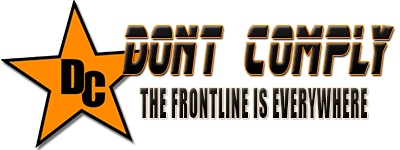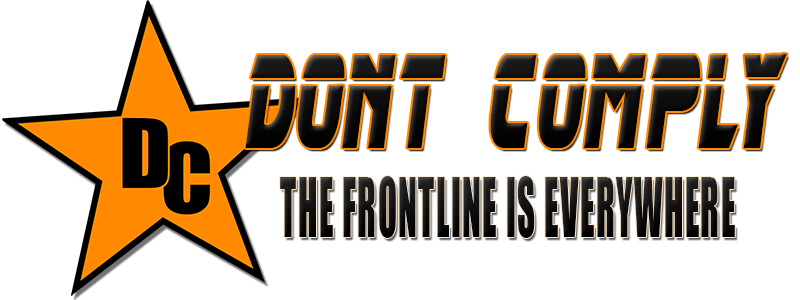(The New American) On Wednesday, October 9, President Obama nominated Janet Yellen to succeed Ben Bernanke as chairman of the board of the Federal Reserve.
“Janet is renowned for her good judgment,” the president said at the White House ceremony announcing his selection of Yellen to head the Fed. “She sounded the alarm early about the housing bubble, about excesses in the financial sector, and about the risks of a major recession. She doesn’t have a crystal ball, but what she does have is a keen understanding about how markets and the economy work — not just in theory but also in the real world. And she calls it like she sees it,” he added.
Another person known for calling ‘em like he sees ‘em is Ron Paul (shown). Just hours after Yellen’s introduction as Fed chairman nominee, the former Texas congressman weighed in, publishing a statement on the Campaign for Liberty website.
“Many will make a big deal about the nomination of Janet Yellen to be the next Fed Chair, but the reality is, as long as we tolerate the Federal Reserve System and its flawed monetary policy, there will be no policy change at the Federal Reserve,” said Dr. Paul.
“Notably absent from the discussion surrounding the debt ceiling and the government shutdown is the fact that the federal government would not be able to borrow the money it needs to finance its wars, bailouts, and entitlement programs if the Federal Reserve did not continue to buy government debt,” he continued.
“Until the issue of the Federal Reserve is addressed, I am not optimistic we will see any true spending reform in Washington. Thankfully, the American people are waking up to what the Federal Reserve has been doing to our money and our economy,” he said.
 A poll conducted last year reveals that Paul’s take on the opinion of Americans regarding the Federal Reserve is right.
A poll conducted last year reveals that Paul’s take on the opinion of Americans regarding the Federal Reserve is right.
In September 2012, a Reason-Rupe survey asked Americans if they would “favor or oppose a law that would allow Congress to conduct an annual internal review of the Federal Reserve.” Seventy percent of respondents favored such an audit.
When it comes to fighting to drag the policies and procedures of the Federal Reserve into the sunshine of congressional oversight, Ron Paul has been the tip of the spear.
As recounted on RonPaul.com:
For the past 30 years, Congressman Ron Paul has worked tirelessly to bring much-needed transparency and accountability to the secretive bank. And in 2009 and 2010 his unfaltering dedication showed astonishing results: HR 1207, the bill to audit the Federal Reserve, swept the country and made the central bankers shudder at their desks. The bill passed as an amendment both in the House Financial Services Committee and in the House itself.
Then, in 2012, his final year in the House, Congressman Ron Paul reintroduced the Audit the Fed bill (H.R. 459), which passed the House 327-98.
Now, his son is leading the assault in the Senate.
In February, Senator Rand Paul (R-Ky.) offered the Federal Reserve Transparency Act of 2013, also known as “Audit the Fed.” The bill would eliminate restrictions on Government Accountability Office (GAO) audits of the Federal Reserve. Additionally, the bill would give Congress oversight of the Fed’s credit facilities, securities purchases, and quantitative easing activities.
“The Fed’s operations under a cloak of secrecy have gone on too long and the American people have a right to know what the Federal Reserve is doing with our nation’s money supply,” Senator Paul said in a statement. “Audit the Fed has significant bipartisan support in Congress and across the country and the time to act on this is now.”
There may be hope that the people’s representatives may finally wrest the reins of federal fiscal policy away from the unelected, unaccountable governors of the Federal Reserve.
As of the time of writing, Senator Paul’s bill, S. 209, has 25 co-sponsors in the Senate, including one Democrat, Mark Begich of Alaska.
In January, a companion measure was offered in the House of Representatives by Representative Paul Broun (R-Ga.) and currently has 166 cosponsors.
While the Rand Paul Audit the Fed bill would bring transparency to the purposely shadowy goings-on at the Federal Reserve, what isn’t so clear is why the Senate has yet to vote on any of the measures mentioned above.
After Ron Paul’s last attempt to audit the Federal Reserve handily passed through the House in 2012, Senate Majority Leader Harry Reid (D-Nev.) blocked the legislation, saying he wouldn’t be comfortable bringing the matter to the Senate until he’d had a “real serious conversation” with Fed chairman Ben Bernanke.
Perhaps someone should have a “real serious conversation” with Senator Reid about the unconstitutional and unconscionable damage the Federal Reserve and the shadowy cartel of global bankers that own it have done to the economic well-being of the United States.
First, the unelected governors of the unconstitutional central bank have an absolute stranglehold and monopoly over the flow of our nation’s money and credit. Not once since the Fed’s inception in 1913 has there ever been a thorough audit or an accounting to Congress about its activities.
During its century-long reign over the financial well-being of our country, the Federal Reserve has manipulated our currency until it is nearly worthless. Meanwhile, Congress turns a blind eye and a deaf ear to the crisis and the calls to control it.
The United States of America has been driven to the very edge of a devastating fiscal cliff by the folly of the Federal Reserve and the abdication of its authority by an impotent Congress. Together, these factors add up to $14 trillion in ill-conceived loans and federal bailouts and a crushing national debt of over $16 trillion.
Adding insult to injury, during testimony to Congress in 2009, Fed Chairman Ben Bernanke refused to reveal to committee members the names of the institutions that received trillions of dollars from the Fed. Later, he told our elected representatives that he would not disclose the identity of the foreign banks that were parties to sweetheart deals with the Federal Reserve.
When it comes to the central bank and its machinations, the fix is in. The Fed — ostensibly a non-profit organization — owns the mint, the money, and sets the terms of the loans it makes to the federal treasury. What’s more, there is no product, there is nothing being loaned other than worthless paper that can never be traded in for anything of value because all that is used to secure the worth of the currency is now owned by the very bankers who control the Federal Reserve.
In his seminal book A History of Money and Banking in the United States, Murray N. Rothbard explained that the international financial cabal’s impetus to create the central bank was to use it as a “cartel device to enable the nation’s banks to inflate the money supply in a coordinated fashion, without suffering quick retribution from depositors or noteholders demanding cash.”
It is well known that both Ron and Rand Paul have at times supported gold as a hard-currency alternative to the paper specie issued (unconstitutionally) by the cartel. What isn’t as well known, however, is that many members of the Federal Reserve board have at various times likewise supported gold as a popular means of exchange.
Rothbard questions the purity of the motives of some economists and Federal Reserve officials who claim to support a return to the so-called gold standard. Rothbard believes that the Fed might back such a move in order to exercise stricter control over the economy. Members of the cartel, Rothbard said, “wanted to press on to use the gold standard as a hard-money camouflage behind which they could change the system into one less nakedly inflationist than populism but far more effectively controlled by the big-banker elites.”
And the Fed will continue to accumulate power. There is no limit to the lengths these fearsome financiers will go to in order to enslave the population of the world. There is no hope of regulating restraint. Power of this magnitude operates beyond the reach of regulations.
Treating the tumor will not eradicate this cancer. The entire mass must be cut out.
If we are to restore financial vitality to this country, Americans must demand that Congress revoke the charter that created the Federal Reserve…
Read Full Story: The New American





